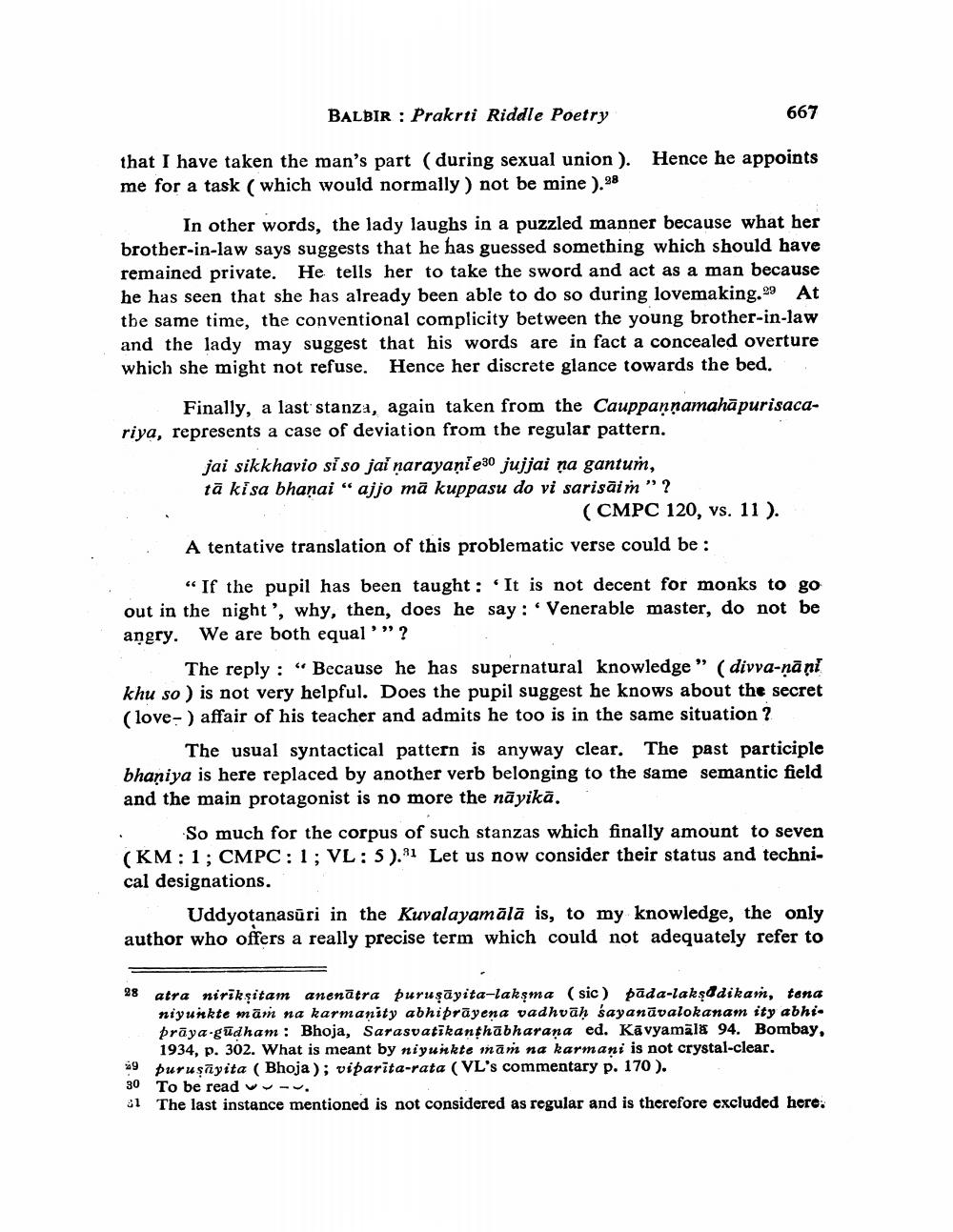Book Title: Prakrit Riddle Poetry Author(s): Nalini Balbir Publisher: Nalini Balbir View full book textPage 7
________________ BALBIR : Prakrti Riddle Poetry 667 that I have taken the man's part (during sexual union ). Hence he appoints me for a task ( which would normally) not be mine ). 38 In other words, the lady laughs in a puzzled manner because what her brother-in-law says suggests that he has guessed something which should have remained private. He tells her to take the sword and act as a man because he has seen that she has already been able to do so during lovemaking.29 At the same time, the conventional complicity between the young brother-in-law and the lady may suggest that his words are in fact a concealed overture which she might not refuse. Hence her discrete glance towards the bed. Finally, a last stanza, again taken from the Cauppannamahāpurisacariya, represents a case of deviation from the regular pattern. jai sikkhavio si so jai narayaņi e30 jujjai na gantur, tā kisa bhanai“ ajjo mā kuppasu do vi sarisāim" ? (CMPC 120, vs. 11 ). A tentative translation of this problematic verse could be: “ If the pupil has been taught : It is not decent for monks to go out in the night', why, then, does he say: 'Venerable master, do not be angry. We are both equal'"? The reply : “ Because he has supernatural knowledge” (divva-ņāņi khu so ) is not very helpful. Does the pupil suggest he knows about the secret (love- ) affair of his teacher and admits he too is in the same situation ? The usual syntactical pattern is anyway clear. The past participle bhaniya is here replaced by another verb belonging to the same semantic field and the main protagonist is no more the nāyikā. . So much for the corpus of such stanzas which finally amount to seven (KM:1; CMPC:1; VL:5). Let us now consider their status and technical designations. Uddyotanasūri in the Kuvalayamālā is, to my knowledge, the only author who offers a really precise term which could not adequately refer to 28 atra nirikşitam anenātra puruşāyita-lakşma (sic) pāda-lakşddikam, tena niyuikte män na karmanity abhiprāyena vadhvah sayanüvalokanam ity abhi. prāya-gudham: Bhoja, Sarasvatikanthābharana ed. Kavyamals 94. Bombay, 1934, p. 302. What is meant by niyunkte mām na karmani is not crystal clear. 29 puruşayita (Bhoja); viparita-rata (VL's commentary p. 170). 30 To be read -. 31 The last instance mentioned is not considered as regular and is therefore excluded here.Page Navigation
1 ... 5 6 7 8 9 10 11 12 13
